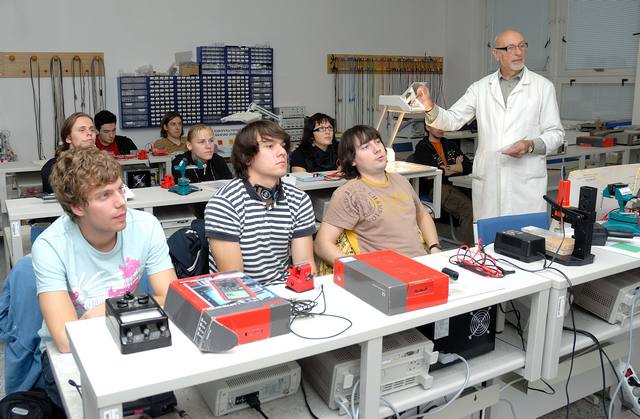A decline in vocational education
The United States losing manufacturing jobs has been a common theme of twenty-first century American Politics with an estimated 3.2 million jobs lost to outsourcing. When Tim Cook, CEO of Apple who has come under fire for manufacturing their products with low-wage workers overseas, was asked why he manufactured his products in China as opposed to America, he said, “China put an enormous focus on manufacturing. In what we would call, you and I would call vocational kind of skills. The U.S., over time, began to stop having as many vocational kind of skills. I mean, you can take every tool and die maker in the United States and probably put them in a room that we’re currently sitting in. In China, you would have to have multiple football fields.”
Cook’s answer is biased, however he did bring up the decline of America’s vocational education system which is a subject that I have always found pretty interesting. vocational education is education that prepares people for a specific trade. It directly develops expertise in techniques related to technology, skill and scientific techniques to span all aspects of the trade. Since the 1970s, the United States has reformed their high schools make college readiness a priority and pushed technical classes to the side, instead of offering separate paths to the schools.
This is due to two things: as Marco Rubio would say “the stigmatization of vocational education” and schools moving vocational education out of curriculum to make room for academic curriculum. The stigmatization of vocational students is clear as 27 percent of parents said that vocational education was not worthwhile and 22 percent said they were “too clever” for vocational education. On the administrative side, it was reported that there was an over 50 percent drop in vocational education enrollment.
A common counter-argument by many is that labor is being automated, therefore America has no need for a skilled technical workforce and should instead focus on a strong academic workforce that can excel. According to a study conducted by Deloitte, a multinational corporate consulting company, this entirely false. In fact, the manufacturing sector alone is expected to have a two million person skilled worker gap over the next decade. It seems that as America has shifted towards a more academic education system, jobs have shifted overseas.
However important, this is not the only reason we should consider placing a higher emphasis on our vocational education. For many Americans, college is not for them or is too expensive. Trade schools cost an average $33,000, which when compared to an average price of $72,000 major for an in-state student attending a public university, is life-changing. This could be made better, by following the lead of a handful of schools across the nation that offer students the ability to earn a degree in a certain trade before they graduate.
It has been proven that students that excel in vocational school are very talented with regards to spatial intelligence and it is known a four year university is not for everyone (both economically and socially). If we accept these truths, we cannot continue to deceive ourselves with the notion that a high school degree prepares you for the workforce. It is hurting our manufacturing, unemployment and some of our most talented students. In the words of Marco Rubio, “welders make more than philosophers.”













